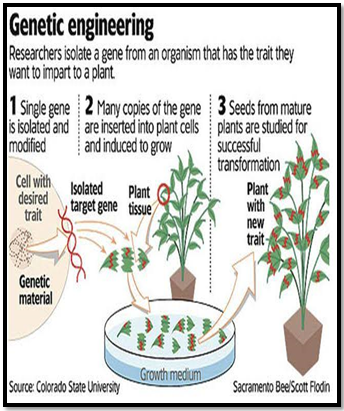CONTESTED HARVEST: THE DEBATE ON GM CROPS IN INDIA
Why in the news?
- The Supreme Court of India delivered a split verdict on allowing genetically modified (GM) mustard in farmer fields. Currently, the only GM seed permissible in India is cotton.
- The two-judge Bench’s differing opinions mean the case now goes to a larger Bench led by the Chief Justice of India, with a directive to the Centre to develop a policy on GM crops.
source:Springerlink
Background and Development
- The GM mustard, DMH-11, was developed under a publicly funded project at Delhi University.
- The Indian Council of Agricultural Research conducted trials over three years, leading to the GEAC’s approval in October 2022.
- Environmentalist groups have raised concerns about DMH-11 being herbicide-tolerant, which may force farmers to use certain pesticides, potentially causing environmental harm.
Judicial Disagreement and Ideological Divide
- Justice Nagarathna argued that the GEAC violated the ‘precautionary principle‘ by not thoroughly deliberating the consequences of GM crops.
- Justice Karol believed the process was satisfactory, highlighting the ideological divide over GM crops, balancing agricultural yield and environmental impact.
| About Dhara Mustard Hybrid
(DMH-11) Development and Collaboration
Genetic Technique and Benefits
Mechanism and Yield
Associated Article: https://universalinstitutions.com/genetically-modified-mustard/ |





